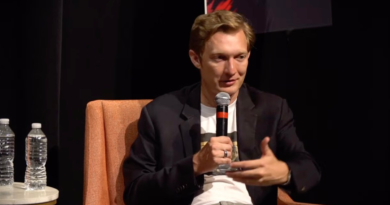Cowboy Ventures goes bigger with $260M across two new funds, including an opportunity fund
Cowboy Ventures, the now-10-year-old, Bay Area-based seed-stage focused fund founded by renowned investor Aileen Lee, has closed on two new funds totaling $260 million in capital commitments. The outfit garnered $140 million in commitments for its fourth flagship fund and another $120 million for its first opportunity-type fund (its “Mustang Fund”).
The amount is more than all the capital that the outfit has raised across its previous funds, which were sized at $40 million, $60 million and $95 million, respectively. Then again, the team has grown over the years from being a one-person firm to an outfit with an investor team, including fintech specialist Jill Williams, who Lee recruited from Anthemis, and Amanda Robson, who was pulled out of Norwest Venture Partners, where she worked with numerous enterprise software companies, including some focused on AI and robotics. (Longtime Silicon Valley attorney Ted Wang is also closely associated with the fund as a “board partner” and advises more than a dozen of its portfolio companies.)
It’s easy to appreciate why LPs committed more capital to Cowboy, even in a market that seems to be actively shrinking given broader market turmoil.
First and foremost are its numbers, which look good, particular given the size of its earlier funds. Cowboy was among the first investors in Guild Education, for example, an online education company that’s focused on upskilling frontline employees, and was valued at $4.4 billion when it closed its most recent round of funding in June of last year. Cowboy is also a seed investor in the security and compliance automation platform Drata, assigned a $2 billion valuation in December when it raised $200 million in Series C funding.

Image Credits: Cowboy Ventures
In conversation with Lee, Williams and Robson late last week, Lee noted that Cowboy thinks of itself as a generalist firm, but that 70% of its most recent fund was funneled into enterprise startups and 30% into consumer startups, given Cowboy has also enjoyed success with the latter. (Most notably, one of its first checks went to Dollar Shave Club, the men’s grooming company acquired by Unilever in 2016 for a reported $1 billion.)
Others of the firm’s bets include Vic.ai, a startup that’s automating accounting processes and just closed a $52 million Series C round in December; Homebase, a platform for small to mid-size businesses that helps with scheduling, payroll, cash advances and HR stuff and has raised roughly $100 million from investors to date; and SVT Robotics, whose software organizes robots in warehouses and factories (it closed $25 million in Series A funding in late 2021).
Lee also said that Cowboy prefers to invest in “pre-product” startups (about 70% of its first checks fall into this category) and that, because from the outset it has cultivated a diverse community of founders, roughly half of its portfolio companies were either founded or co-founded by a woman and roughly one-third of them have been founded or co-founded by a person of color.
While Cowboy is very much focused on the bottom line, says Lee, it also aims to “have a positive impact on the community around us. We’re not a social impact fund, but we get out of bed every day a little bit excited to prove that you can be great at this job and also be a thoughtful human being at the same time.”
Indeed, the three partners said the idea is to keep doing what Cowboy has been doing all along, with the added twist of operating an opportunity fund to back its breakout winners. Though LPs have said they’re less and less enthusiastic about such vehicles — it complicates their own portfolio construction when early-stage firms also operate later-stage pools of capital — Williams said Cowboy’s investors didn’t blink at the idea. It was time, she suggested.
“We’ve been writing follow-on checks to a lot of our companies just either through [special purpose vehicles] or through our existing funds, but not necessarily in the check size that we would have wanted or even [given the room] our founders were giving us,” she said last week. “Instead of leaving capital on the table of doing SPVs, this gives us the opportunity to pursue exactly the same strategy but double down on our winners, and our LPs really see this as an extension of that strategy.”
Robson meanwhile suggested that the team is excited to have fresh capital to put to work after two years of froth. “We have seen a lot of incremental ideas, and this was especially true in the second half of last year. But with budgets constrained and the bar higher regarding the value you have to provide [your customers],” she said, “we think we’re going to see far better ideation as this year goes on and the dust settles on what the new normal for the environment is.”




